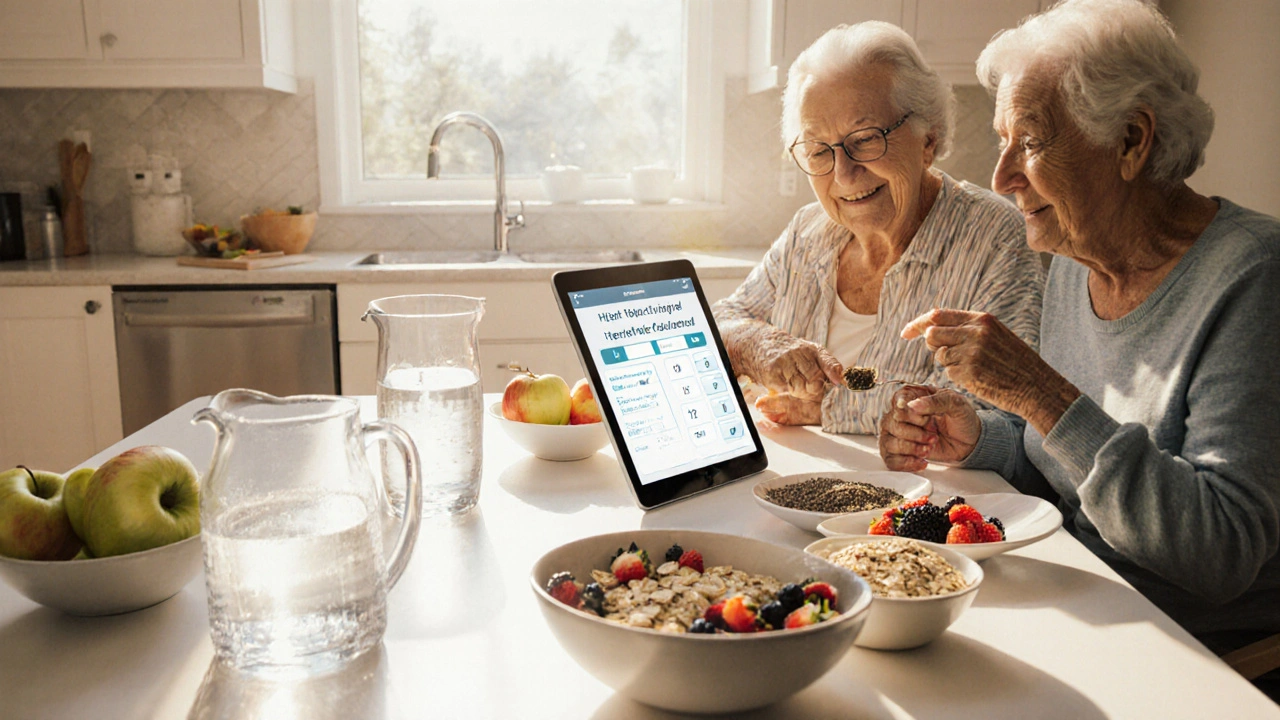When we talk about Senior Bowel Health, the condition of the digestive system in older adults and how to keep it moving smoothly. Also known as elderly gut health, it matters because regularity, comfort, and nutrient absorption decline with age.
One of the most common hurdles is Constipation, infrequent, hard stools that often trouble seniors. Senior bowel health requires adequate fiber—about 25‑30 g daily—from whole grains, fruits, and veggies. Pair fiber with plenty of water; dehydration hardens stool and makes passage painful. Simple moves like a short walk after meals also stimulate peristalsis, turning a sluggish gut into an efficient conveyor belt.
Another frequent complaint is Abdominal Distension, bloating and a feeling of fullness that many older adults experience. A low‑FODMAP diet can reduce the fermentable carbs that feed gas‑producing bacteria, so it often eases that uncomfortable stretch. By limiting foods like onions, garlic, and certain fruits, seniors can keep the belly flat and avoid the social awkwardness of sudden puffiness.
Gut microbes play a silent yet powerful role. Probiotics, live beneficial bacteria that help balance the intestinal flora influence everything from stool consistency to immune response. Adding a daily yogurt with live cultures or a certified supplement can replenish good bacteria that tend to dwindle with age, supporting overall senior bowel health and reducing the odds of both constipation and bloating.
Medications add another layer of complexity. Over‑the‑counter antacids like calcium carbonate, prescription opioids, and some antidepressants can slow gut motility. Knowing which pills are culprits lets seniors and their doctors adjust dosages or add a stool‑softener as a preventive measure. It’s a balancing act: treat the primary condition without sacrificing digestive comfort.
Beyond diet and meds, a few everyday habits make a big difference. Regular physical activity—whether a light resistance routine or a daily stroll—keeps the intestines wiggling. Stress‑relief practices, such as gentle yoga or mindful breathing, lower cortisol, which otherwise can tighten the gut muscles. Some seniors find mild herbal allies like nutmeg or chrysanthemum helpful for digestion; they’re not magic bullets, but they can complement a solid dietary plan.
When changes don’t help, it’s time to get professional input. Persistent pain, blood in stool, or unexplained weight loss should trigger a visit to a healthcare provider. Screening tools like colonoscopy or FIT tests can catch serious issues early, ensuring that senior bowel health stays on a preventive track rather than a reactive one.
Below you’ll find a curated collection of articles that dive deeper into each of these topics. From practical constipation relief steps to detailed probiotic guides and low‑FODMAP meal ideas, the posts are designed to give seniors actionable insights and safe strategies for keeping their gut happy and functional.
